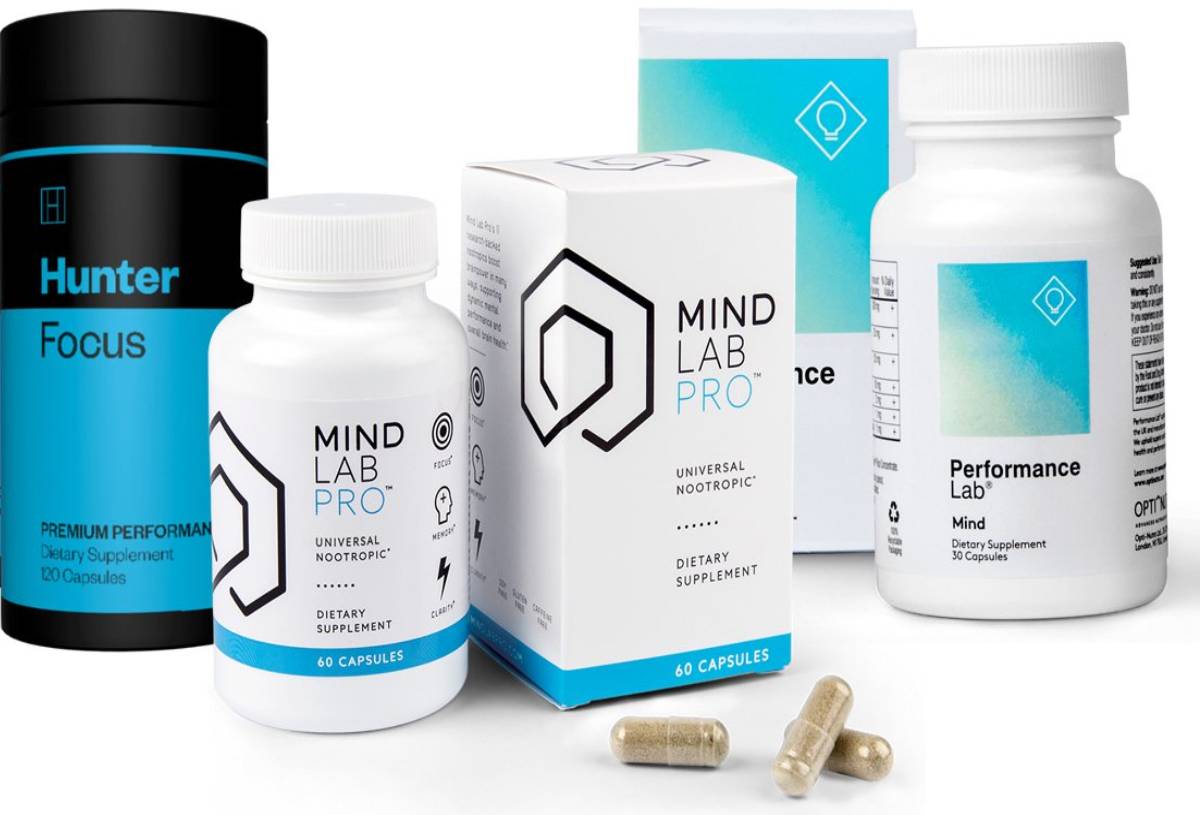
Benefits of Magnesium A Comprehensive Guide
Introduction
Magnesium is an essential mineral that plays a critical role in numerous bodily functions, and its importance cannot be overstated. This comprehensive guide will delve into the many benefits of magnesium, explaining why it’s crucial for overall health and well-being.
Table of Contents
- Introduction
- What is Magnesium?
- Dietary Sources of Magnesium
- The Role of Magnesium in the Body
- Cellular Energy Production
- Muscle Function and Relaxation
- Nervous System Health
- Bone Health
- Heart Health
- Common Signs of Magnesium Deficiency
- Muscle Cramps and Spasms
- Fatigue
- Anxiety and Depression
- Insomnia
- Migraines
- Health Benefits of Magnesium
- 4.1. Cardiovascular Health
- 4.2. Bone Health
- 4.3. Diabetes Management
- 4.4. Anxiety and Depression
- 4.5. Sleep Quality
- 4.6. Muscle Function
- 4.7. Migraine Relief
- Magnesium Supplements
- Different Types of Magnesium Supplements
- Dosage and Safety
- Dietary Sources of Magnesium
- Nuts and Seeds
- Leafy Greens
- Whole Grains
- Legumes
- Fish
- Conclusion
Introduction
What is Magnesium
Magnesium is a vital mineral found in the human body. It is the fourth most abundant mineral, and it is involved in over 300 biochemical reactions, including energy production, muscle function, and nerve function. Magnesium is required for the proper functioning of enzymes, which are essential for various metabolic processes.
Dietary Sources of Magnesium
To maintain adequate levels of magnesium, it’s essential to include magnesium-rich foods in your diet. Some of the best dietary sources of magnesium include nuts and seeds (such as almonds and pumpkin seeds), leafy greens (like spinach and kale), whole grains, legumes, and fish. In addition to food sources, magnesium supplements are also available and can be used to meet daily magnesium requirements.
The Role of Magnesium in the Body
Cellular Energy Production
One of the most crucial functions of magnesium is its role in energy production. It is a key component of adenosine triphosphate (ATP), which is the primary energy currency of cells. Without magnesium, the body’s ability to produce and use ATP for energy would be severely compromised. Thus, magnesium is often referred to as “nature’s energy mineral.”
Muscle Function and Relaxation
Magnesium is essential for muscle function, including both contraction and relaxation. It works in conjunction with calcium to ensure that muscles contract and then relax properly. This balance is critical for everyday activities and athletic performance. When magnesium levels are low, it can lead to muscle cramps and spasms.
Nervous System Health
The nervous system relies on magnesium to transmit signals between the brain and the body. It helps regulate neurotransmitters, which are essential for mood and cognitive function. Adequate magnesium levels can contribute to improved brain health and emotional well-being.
Bone Health
Magnesium is a vital component of bone health. It helps regulate calcium and vitamin D, both of which are necessary for bone density. In fact, around 60% of the body’s magnesium is stored in the bones. A deficiency in magnesium can lead to weaker bones and an increased risk of osteoporosis.
Heart Health
Magnesium plays a significant role in cardiovascular health. It helps maintain normal heart rhythm and supports blood vessel function. Low magnesium levels are associated with an increased risk of heart arrhythmias, high blood pressure, and even heart disease. Ensuring an adequate intake of magnesium is crucial for maintaining a healthy heart.
Common Signs of Magnesium Deficiency
It’s essential to recognize the signs of magnesium deficiency, as it can have a significant impact on your overall health. Common symptoms of magnesium deficiency include:
Muscle Cramps and Spasms
One of the most noticeable signs of magnesium deficiency is muscle cramps and spasms. These can occur during physical activity or even at rest. Ensuring you have adequate magnesium levels can help prevent these painful episodes.
Fatigue
Magnesium is involved in energy production, so a lack of this mineral can lead to persistent fatigue and low energy levels. If you find yourself constantly tired, magnesium deficiency might be a contributing factor.
Anxiety and Depression
Low magnesium levels have been linked to an increased risk of anxiety and depression. Magnesium helps regulate neurotransmitters, and its deficiency can disrupt the delicate balance of these mood-regulating chemicals.
Insomnia
Sleep disturbances, such as difficulty falling asleep or staying asleep, can be associated with magnesium deficiency. Magnesium’s role in muscle relaxation and calming the nervous system makes it important for achieving a good night’s sleep.
Migraines
People who suffer from migraines often have lower magnesium levels than those who don’t. Magnesium supplements have been shown to reduce the frequency and severity of migraines in some individuals.
Health Benefits of Magnesium
Cardiovascular Health
Maintaining adequate magnesium levels is crucial for cardiovascular health. Studies have shown that magnesium can help lower blood pressure by relaxing blood vessels and reducing inflammation. It also plays a role in preventing arrhythmias and reducing the risk of heart disease.
Bone Health
As previously mentioned, magnesium is essential for bone health. It works in conjunction with calcium and vitamin D to build and maintain strong bones. A diet rich in magnesium can help prevent osteoporosis and fractures in older adults.
Diabetes Management
Magnesium plays a role in insulin sensitivity, and low magnesium levels are associated with an increased risk of type 2 diabetes. Ensuring sufficient magnesium intake may help regulate blood sugar levels and improve diabetes management.
Anxiety and Depression
Some studies suggest that magnesium supplementation can be beneficial for individuals with anxiety and depression. While it’s not a standalone treatment for these conditions, it can be a supportive element of a comprehensive mental health plan.
Sleep Quality
Magnesium’s role in muscle relaxation and its calming effect on the nervous system can contribute to better sleep quality. Individuals with sleep disturbances or insomnia may find relief by increasing their magnesium intake.
Muscle Function
For athletes and active individuals, maintaining proper muscle function is crucial. Magnesium can help prevent muscle cramps and spasms, ensuring that muscles contract and relax efficiently during physical activity.
Migraine Relief
Migraines can be debilitating, and magnesium supplements have been shown to reduce the frequency and severity of migraine attacks in some individuals. While the mechanisms aren’t fully understood, it’s thought to be related to magnesium’s role in nerve and muscle function.
Magnesium Supplements
While it’s best to obtain magnesium through a balanced diet, supplements can be a valuable option for individuals with specific needs or dietary restrictions. Here are some important considerations when using magnesium supplements:
Different Types of Magnesium Supplements
Several types of magnesium supplements are available, including magnesium citrate, magnesium oxide, magnesium glycinate, and more. Each has different
bioavailability and may be better suited for specific health goals. Here are some common types of magnesium supplements and their characteristics:
- Magnesium Citrate: This form of magnesium is highly bioavailable and is often used to address constipation and improve bowel regularity. It’s well-absorbed by the body.
- Magnesium Oxide: While it contains a higher percentage of elemental magnesium, magnesium oxide is less bioavailable than other forms, which means the body absorbs less of it. It’s commonly used as a laxative.
- Magnesium Glycinate: Magnesium glycinate is well-absorbed and less likely to cause digestive issues. It’s a good option for those looking to increase magnesium intake without the risk of stomach upset.
- Magnesium L-Threonate: This form of magnesium is known for its ability to cross the blood-brain barrier, potentially making it useful for cognitive health and neurological conditions.
- Magnesium Chloride: Often used in topical magnesium products like oils and creams, magnesium chloride can be absorbed through the skin. It may be helpful for those who have difficulty with oral supplements or experience digestive discomfort.
- Magnesium Sulfate (Epsom Salt): Epsom salt is primarily used for external applications, such as in baths, to relax muscles and soothe soreness. It’s not commonly used as an oral supplement.
Dosage and Safety
The recommended daily allowance (RDA) for magnesium varies by age and sex, but it generally ranges from 300 to 420 milligrams for adult males and 270 to 320 milligrams for adult females. Pregnant and breastfeeding women may require higher amounts.
When taking magnesium supplements, it’s important to follow the recommended dosage on the product label or consult with a healthcare professional. Excessive magnesium intake can lead to diarrhea, abdominal cramping, and other gastrointestinal issues.
Magnesium supplements may interact with certain medications, so it’s crucial to discuss their use with your healthcare provider, especially if you’re taking medications for heart conditions, blood pressure, or diabetes.
Dietary Sources of Magnesium
In addition to supplements, dietary sources of magnesium are essential for maintaining optimal health. Here are some magnesium-rich foods you can include in your diet:
Nuts and Seeds
Almonds: Almonds are an excellent source of magnesium. A 1-ounce (28-gram) serving provides about 80 milligrams of magnesium.
- Pumpkin Seeds: Pumpkin seeds are another magnesium-rich snack, offering approximately 150 milligrams per 1-ounce serving.
Leafy Greens
- Spinach: A 1-cup serving of cooked spinach contains around 157 milligrams of magnesium.
- Swiss Chard: One cup of cooked Swiss chard provides approximately 150 milligrams of magnesium.
Whole Grains
- Brown Rice: One cup of cooked brown rice offers around 86 milligrams of magnesium.
- Quinoa: A 1-cup serving of cooked quinoa contains about 118 milligrams of magnesium.
Legumes
- Black Beans: A 1-cup serving of cooked black beans provides approximately 120 milligrams of magnesium.
- Lentils: Lentils are a good source of magnesium, with about 71 milligrams per 1-cup serving when cooked.
Fish
- Mackerel: Mackerel is a fatty fish rich in magnesium. A 3.5-ounce serving offers roughly 97 milligrams of magnesium.
- Salmon: Salmon contains approximately 22 milligrams of magnesium per 3.5-ounce serving.
Conclusion
Magnesium is a versatile and essential mineral with a wide range of health benefits. It plays a critical role in energy production, muscle function, nervous system health, bone health, and heart health. Recognizing the signs of magnesium deficiency is vital to prevent health issues associated with inadequate magnesium intake.
To enjoy the numerous benefits of magnesium, it’s important to maintain a well-balanced diet that includes magnesium-rich foods. If dietary intake is insufficient, supplements can be a valuable tool to address specific health concerns or conditions.
I am deeply convinced that each patient needs a unique, individual approach. Therefore, I use different psychotherapy methods in my work. During my studies, I discovered an in-depth interest in people as a whole and the belief in the inseparability of mind and body, and the importance of emotional health in physical health. In my spare time, I enjoy reading (a big fan of thrillers) and going on hikes.
[email protected]
- The Comprehensive Guide to the Benefits of Vitamin A - October 16, 2023
- Benefits of Magnesium A Comprehensive Guide - October 16, 2023
- Benefits of Bacopa Monnieri Nootropics - October 13, 2023


